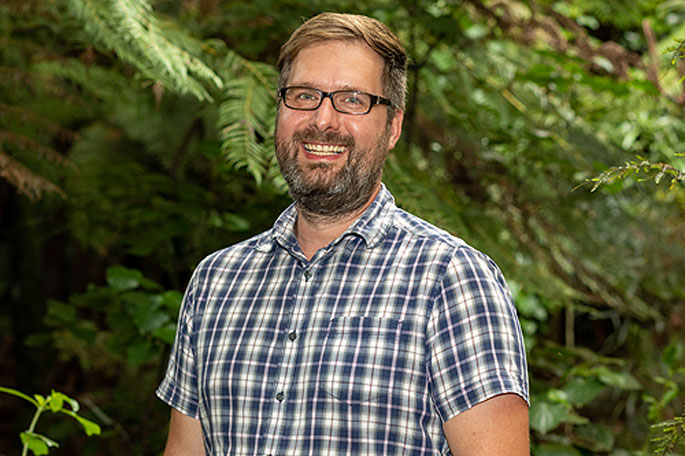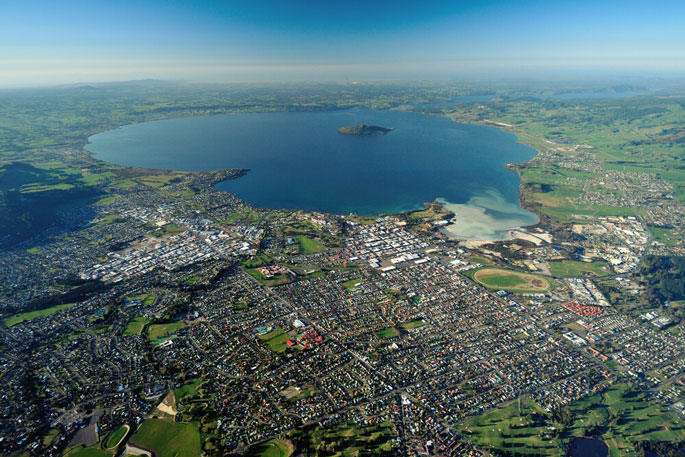In a global analysis of plastic pollution levels in freshwater lakes, it appears New Zealand has come out punching well above its weight, and not in a good way.
The study revealed high levels of plastic pollution in New Zealand lakes which University of Waikato Associate Professor and freshwater ecologist Dr Deniz Özkundakci says is disappointing.
'Lake Rotorua showed levels of plastic pollution comparable with lakes in Europe and the USA. However – and of concern – the density of population around Lake Rotorua is a lot smaller than some other significantly polluted lakes from the study,” says Dr Özkundakci.
He says while they expected New Zealand lakes to have some plastic pollution, the results were disappointing for a country that has a relatively low population density, and given Kiwi's high level of personal responsibility for waste reduction.
The results showed that not even the most remote lakes around the world were untouched by plastic pollution.
Led by Dr Veronica Nava, a research fellow at the University of Milan-Bicocca's Department of Earth and Environmental Sciences, 79 researchers from the Global Lake Ecological Observatory Network contributed samples for the study of 38 lakes across 23 different countries and six continents.
A number of New Zealand scientists also contributed to the work.
The study specifically measured levels of small plastic particles, so microplastics through to macroplastics measuring a maximum 10mm in diameter.
'One of the more alarming results was the first data showing plastic pollution in some lakes is higher than the plastic ‘garbage patches' in the ocean.”
New Zealand lakes didn't have levels to rival the ocean ‘garbage patches' but Lake Rotorua was found to have high levels of plastic pollution and the highest levels of all the New Zealand lakes in the study.
'This very much aligned with the global data from other lakes in high-population areas – those lakes in or near built-up areas were significantly more polluted than those in less populated areas. However, not a single lake in the research was unaffected by plastic pollution no matter how far it was from human activity.”
 Dr Deniz Özkundakci.
Dr Deniz Özkundakci.
Plastic pollution of lakes impacts sources of drinking water and can be damaging to aquatic organisms living in and around lakes. In a time of climate change, ecosystems and biodiversity are already under stress.
The researchers point to the growing evidence of chemical leaching from plastics into water and state the need for further research on the possible impacts of this emerging issue.
'I think one of the most important things we should take away from this work is that it serves as an early warning sign of plastic pollution in lakes. It's a chance for us to take action and actively safeguard our lakes from further damage.”
Dr Özkundakci currently holds the Toihuarewa Waimāori - Bay of Plenty Regional Council Chair in Lake and Freshwater Science.
He collaborates extensively with other organisations, iwi and stakeholders to promote awareness of freshwater science and support local aspirations related to lakes.
'Plastic debris in freshwater systems is severely understudied in New Zealand. The invitation to contribute to a global study was an important opportunity to get baseline data on some of our lakes.”
Dr Özkundakci would like to see the work built on for a larger survey of local lakes.
'To identify the extent of plastic pollution across New Zealand lakes, a nationwide baseline survey of plastics would be a good starting point. This study has developed a straightforward methodology that can be easily replicated and utilised by invested organisations and groups.”
The study Plastic debris in lakes and reservoirs was published in the scientific journal Nature on Wednesday, July 12, 2023. (DOI: 10.1038/s41586-023-06168-4).



2 comments
NZ could be first.
Posted on 13-07-2023 11:32 | By morepork
Bacteria that eat plastic have already been identified and so have some natural insect larvae. The bacteria are too dangerous to release into the wild, although I understand research is ongoing and they are looking for a way to control them. It 's really just a matter of time before plastic in the oceans and the lakes will be demolished. Maybe this is an area where we could lead the world.
Tidy Kiwi Ads
Posted on 14-07-2023 06:31 | By Thats Nice
What happened to the adverts on "Being A Tidy Kiwi?" I know we shouldn't have to tell people not to litter but it actually seems like we do need to.
Leave a Comment
You must be logged in to make a comment.